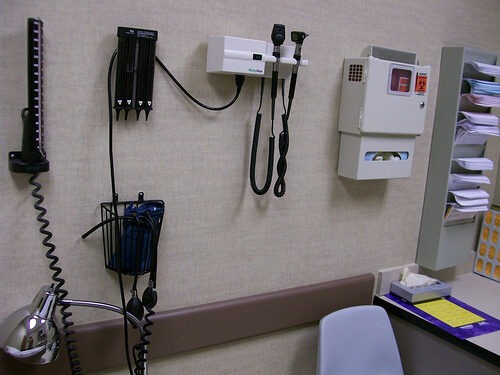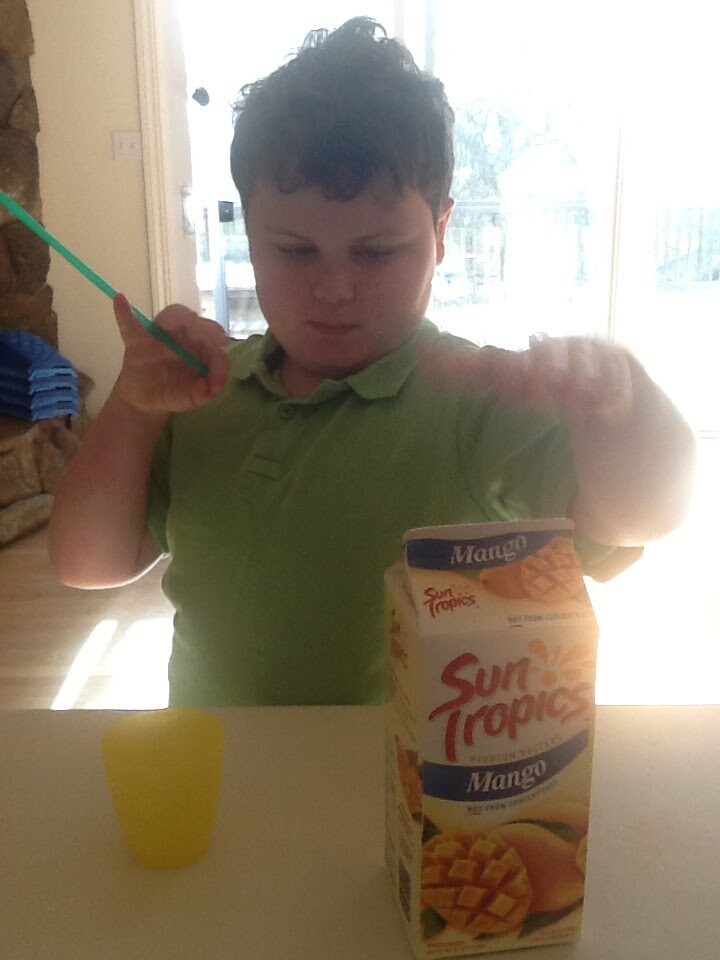Bullying is a very serious subject, and every school needs to be very serious about understanding, investigating, and handling bullying situations with thoughtfulness, care, and compassion.
Tag: presuming competence
These revelations, about presuming competence, human dignity, and the least dangerous assumption—they don’t apply only to kids who are secret geniuses. They apply to everyone. They are the most important for the kids who really do have intellectual disabilities, who really can’t read or use full sentences and who really do need extensive support.
Photo © Subconsci Productions [image: Instruments on the wall of a doctor’s exam room.] TPGA is observing Autism Acceptance Month by featuring accounts from autistic people about the differences accommodations (or lack thereof) make in their lives. Today, Kate talks about her experience trying to participate in a TMS research study, how distressing the entire scenario was for her because of the way she was treated, and how autism researchers need to better understand and accommodate autistic people if they want more autistic participants in their studies. by Kate I have figured it out, and I kind of feel like a genius. I have figured it out, and it is this: Awareness is people talking to you. Acceptance is people respecting you. Awareness is that high-pitched, baby voice. Acceptance is speaking in a normal tone. Awareness is being invited to the table. Acceptance is making sure that you can reach…
Shannon Des Roches Rosa www.squidalicious.com Photo © Merrick Brown at Flickr “Is Your Son Really That Difficult?” That’s what the well-meaning blinds salesperson who just left my house asked me, after I told her I was leery of installing vertical blinds in our family room — mostly because I was worried Leo would love them to pieces, quite literally. I launched into kind-but-firm on-the-spot advocacy and acceptance mode. I didn’t cry (something I might have done in the past) or get strident (something I am still working on). Instead, I smiled to show how much I love my son, and let her know that she was misunderstanding my concerns. I told her that I wouldn’t call my son difficult, but that his autism means he sometimes has difficulty reining in his impulses. So even if we asked him to please not wrap himself up in or set in motion a…
Ariane Zurcher emmashopebook.com We want April — Autism Acceptance Month — to matter, to help further acceptance and understanding of autistic experiences, happiness, and rights for autistic people of all ages and abilities. We will be publishing your Autism Acceptance posts and pictures all month long. If you want to participate, contact us at thinkingautism at gmail dot com. -TPGA Editors What follows are some of the things I wish I’d been told (and given) when we learned Emma was Autistic. These are the things, in retrospect, I wish all those doctors, specialists, pediatricians, therapists, and people who dedicate their lives and careers to autism had told me, but did not. I believe our lives would have changed dramatically had we been told even a few of these things. It is my hope that for those of you who may be at the beginning of your journey with an Autistic…
I love that the expectation is that he has an opinion, wants to learn, and we just haven’t figured out all the best ways to help him communicate. It is comforting to know that they meet him where he is, but demand much of him.
Jaden Walker about.me/jaden.walker A few days ago, congress held a panel on the rising prevalence of autism. As I worried, a great portion of the debate devolved into the long debunked connection between autism, vaccines, and mercury. To put it mildly, I spent a lot of it with my palm firmly attached to my face. One of the redeeming portions was near the very end, where two actual autistics were allowed to speak: John Michael Carley and Ari Ne’eman. While I won’t get into everything that was said (these two were brilliant, as always), one moment is stuck in my head and I just can’t shake it. One of Carley’s comments was (my quote is probably not exact), “Your sons and daughters with autism can hear what you say about them and read what you write about them.” Before he’d even fully finished the sentence, several people behind him began…
Meg Evans megevans.com I met you last weekend when I was leaving a crowded shopping center. Your son, who might have been about ten years old, suddenly did a cartwheel in front of me while I was walking to my car. You took hold of your son’s hand and then glanced toward me and apologized by saying, “He’s retarded, sorry.” I didn’t say anything to you before you went on your way. No doubt your attention was focused on keeping your son safe, and rightly so. You wouldn’t have wanted a nosy stranger to lecture you on how your son might feel about your choice of words. Indeed, you probably believed that your apology was the best way to protect your son’s feelings, by letting me know that there was a reason for his behavior. I’m sure there must have been many times when ignorant, judgmental people yelled at your…
Shannon Des Roches Rosa www.squidalicious.com Sometimes I think I like sameness more than my son does. That’s why a persistent hindrance to increased independence for autistic kids like my son Leo is parents like me overlooking opportunities for self-care and competence. Sometimes this happens because we find it quicker and easier to take care of breakfast preparation or our kids’ tooth brushing ourselves, sometimes because in our day-to-day rush we forget to check in and see if new skills have emerged. It takes effort and vigilance to give Leo the chances he needs to demonstrate competence. Like this past weekend, when Leo asked me for mango juice. I was about to pour it for him, but instead stepped back and asked if he wanted to pour it himself. Which he did! He even put the lid back on the carton (a twisting/screwing motion) with one hand while drinking his juice…






